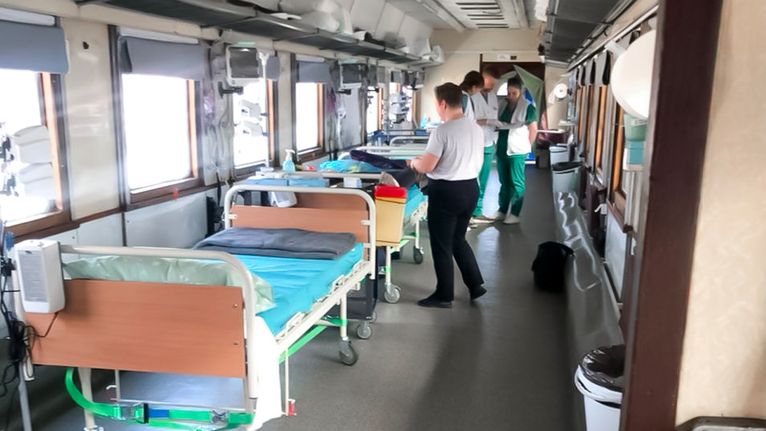Their recent impact spans continents and communities, each effort an example of innovative solutions, unstoppable spirit of caring and an ability to deliver world-class medical care even in the most challenging conditions.
It’s this commitment to finding a way to care, no matter the circumstance, that sets them apart as they serve local patients every day and as integral members of the global medical community.
At a glance:
In war-torn Ukraine, neurosurgeon Jonathan Forbes, MD, and a team traveled from the U.S. to help those impacted by the conflict, providing neurosurgical care, training in neurotrauma and helping with development of an ICU on a train to get critical services to those in need.
Most recently in Kenya, and previously in Uganda, Chad Zender, MD, and Katrina Harrill, RN, provided surgical intervention for patients with head and neck diseases. They operate through the nonprofit they founded together in 2017 after years of traveling to Uganda—Head and Neck Outreach—which also helps improve care in this region through education, research and development of surgical programs.
In Cincinnati, the UC Health Community Relations team continued its efforts to promote health equity by organizing volunteers from UC Health Volunteer Ambassadors program and community partners to set up a Health Pavilion at the 34th Annual Black Family Reunion event in August 2022. Volunteers and staff provided health screenings, education and support services to attendees, including blood pressure readings, and head and neck, prostate and lung cancer pre-screens.
In Tanzania, Christopher Lewis, MD, has been making an impact for nearly 20 years by applying the medical knowledge he uses every day in his roles as a UC Health physician and University of Cincinnati Vice Provost to help increase access to healthcare—as well as improve education and overall community wellbeing— through Village Life Outreach Project, Inc., the nonprofit he founded. Primary care, infectious disease and obstetrics and gynecology are some of the services provided through a community-based healthcare approach.



